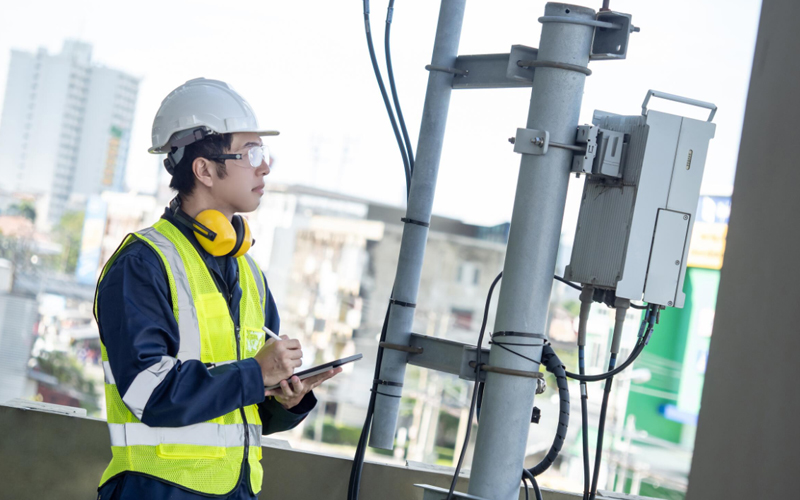According to a leading global payments platform, the cost of online payment fraud will reach $206 bn by 2025. During this time, fake identities and addresses may incur damage of up to $14 bn. An incorrect or incomplete address could also be a mistake by a genuine customer, which causes delays in delivery, possible refunds, and calls to the customer service centre.
This article explains the importance of e-commerce address verification in preventing fraud.
What is address fraud in e-commerce?
Under address fraud, fraudsters use someone else’s address information to gain access to products, services, and financial resources. Billing and shipping address fraud are two methods fraudsters use.
- Shipping address fraud
- Billing address fraud
Fraudsters provide a fake shipping address to receive products and services without paying for them.
Fraudsters use a fake billing address to achieve the same result.
Social engineering and identity theft are two ways fraudsters use to carry out address fraud. They may also use fake IDs and virtual private networks (VPNs) to hide their location and identity. Fraud can cause significant financial and reputation damage to the business. Here, we discuss the techniques in detail –
- Social engineering
- Identity theft
- Fake ID
- Virtual private networks
Fraudsters can trick legitimate users into revealing their identity and sensitive information. They do so by posing as someone the user can trust through phishing emails and fake websites
Fraudsters can steal someone’s name, address, and social security number (SSN) to open an account with an e-commerce business or to obtain a duplicate credit card.
Fraudsters can use fake IDs to show that they live at an address where they do not. Using this, they can apply for credit cards and use them on e-commerce websites.
Fraudsters know that businesses track a user’s physical location. To bypass this, they can use a VPN to change their location, which makes it difficult to track.
How do we prevent address fraud in e-commerce?
Address verification solutions are key to preventing this type of fraud. Several ways to do so are –
- Address verification system (AVS)
- Geolocation verification
- Delivery address verification
Several credit card companies, including banks and e-commerce businesses, use AVS to verify billing addresses. AVS compares the billing address on the file with the credit card issuer to the one that the user enters on the website. If there is a mismatch, the e-commerce transaction may be declined.
This technology uses the customer’s IP address to trace their location. If their current location does not match the shipping or billing address, the transaction may be declined.
This is a third-party service that verifies the customer’s physical address. It compares the current address with other available addresses of the customer and uses satellite imagery to verify if the place exists.
While verifying the customer’s address, it is important to keep their data secure by limiting access and using encryption. You must clean up the system regularly to improve accuracy and monitor the data regularly to identify any changes in patterns and possible fraud. Lastly, you need fraud prevention technology and train the staff on using it effectively.
Importance of address verification for e-commerce businesses
Address verification is crucial in e-commerce businesses to streamline operations and prevent financial and reputation damage. Here are the positive outcomes of using the technology –
- Checkout optimisation
- Increase product/service deliverability
- High-quality database
- Increase productivity and save time
- Elevate customer satisfaction
A long and confusing checkout process is the reason for 18% of all abandoned carts. By asking the customers to fill out their long addresses, you risk making them lose interest and leave. An address verification solution can help customers enter their addresses with a few clicks, thus making the checkout and verification process smooth. You also avoid the risk of shipping the product to the wrong address.
To uphold the reputation, you must deliver the product before the date you commit to the client. An e-commerce address verification solution deals with problems such as incomplete information and possible fraud in cash-on-delivery to keep your delivery ratios high.
Research shows that up to 20% of addresses on an e-commerce website lack at least one piece of information. This adds to the delays and possible product returns. An address verification solution ensures that the information is up-to-date and the customer or business does not have to pay the fee of re-shipping the goods.
Employees no longer waste time verifying the address information, which increases efficiency and productivity.
Customers can automatically enter and validate their address to complete the transaction. By streamlining address verification and product delivery and preventing fraud, your business builds a reputation of trust and confidence.
How can Infosys BPM help?
Retail and e-commerce fraud detection solution leverages artificial intelligence (AI) and machine learning (ML) models to increase your ROI and reduce false positives.
Read more about e-commerce fraud prevention using address verification at Infosys BPM.








